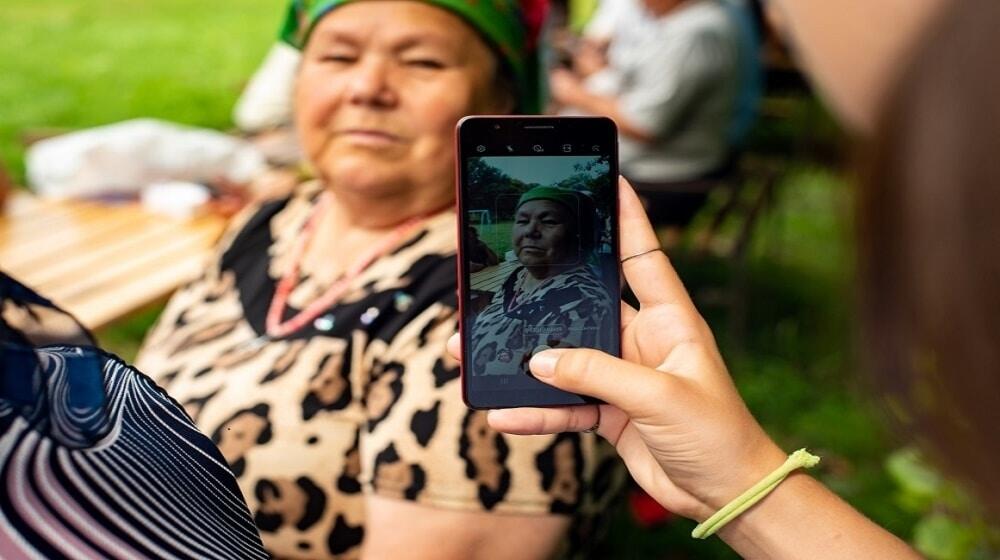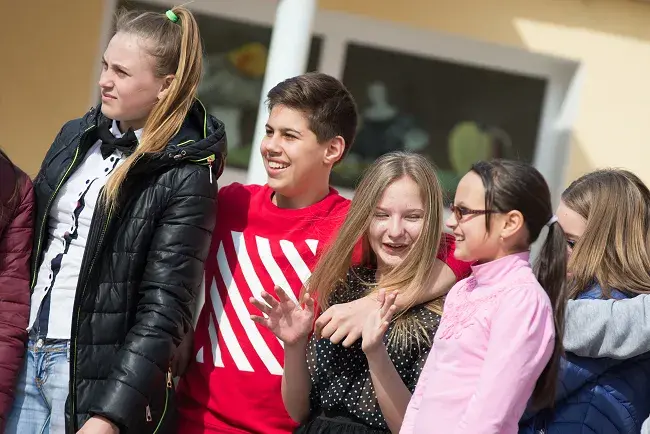United Nations Population Fund (UNFPA) launches the ‘Older people go online’ campaign on social media, where older people assisted by young volunteers will take photos and videos about their daily life and share them on social networks. In this way, older people will overcome social isolation, will stay connected to community life and digital changes. The initiative takes place under the ‘Digital skills connect generations’ project funded by UNFPA Moldova, Moldcell Foundation and Swiss Cooperation Office and carried out by HelpAge International Moldova in partnership with the Ministry of Health, Labour and Social Protection of the Republic of Moldova, aiming to promote digitalisation of older people and intergenerational dialogue, but also to show aspects of the ageing process in the Republic of Moldova.
The ‘Older people go online’ campaign was symbolically launched in the context of the International Youth Day celebrated annually on 12 August and will end on 1 October, on the International Day of Older Persons. Thus, for almost two months, those 300 older people and 75 young volunteers participating in the ‘Digital skills connect generations’ project will communicate and document their lives through photos and videos.
Previously, the older people have received smartphones with minutes and Internet traffic included and have participated in training on how to use them, and now they are going to put into practice acquired skills and knowledge. As part of the campaign, the older people will be guided by about 75 young volunteers, who will show them how to use their devices, how to set up social media accounts and post content.
‘I was very happy to notice that the older people in my community were very open during the training on the use of mobile phones and social media – most of them very quickly learnt how to take photos or how to post on Facebook. I am ready to further support older people’, said Felicia Parasca, volunteer from Ciniseuti village, Rezina district.
‘We, older people, need the help of young people to understand better how mobile phones and the Internet work and how to use them in everyday life. I am glad to participate in this project and share beautiful moments of my life as part of this campaign’, said 65-year-old Maria Suleac from the same community.
The topics addressed during the campaign cover living conditions, occupations and hobbies of older people, activities including social activities in which they manage to be actively involved and other moments that can be captured with a mobile phone.
Posts from the ‘Older people go online’ campaign could be followed on Facebook by clicking on the hashtags #DialogIntergenerațional, #AbilitățiDigitale and #LikeDeLaBunei. The most representative photos could be displayed in the ‘Faces of Ageing’ exhibition, planned for October 2021.
According to the official data of the National Bureau of Statistics (NBS) for 2021, 29.4% of the Moldovan population with usual residence[1] is over 55 years old.
At the same time, according to the most complex demographic Generations and Gender survey, conducted in 2020 by UNFPA in partnership with the Ministry of Health, Labour and Social Protection, NBS and the Netherlands Interdisciplinary Demographic Institute, the share of older people aged 55-74 years in the Republic of Moldova who use the Internet at least once a day accounts for 53%.
The ‘Digital skills connect generations’ project aiming to support social and digital inclusion of older people with the help of young people, is funded by UNFPA Moldova, Moldcell Foundation and Swiss Cooperation Office and implemented by HelpAge International Moldova in partnership with the Ministry of Health, Labour and Social Protection of the Republic of Moldova in 15 rural communities.
[1] Usual residence is defined as the place where a person has lived for the past 12 months regardless of temporary absences (for the purpose of recreation, vacation, visits to relatives and friends, business, medical treatment, religious pilgrimages, etc.)




